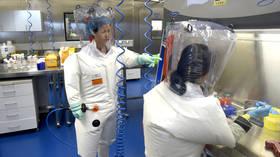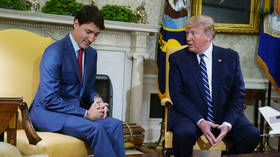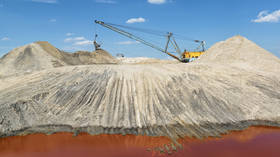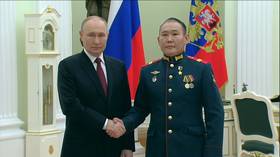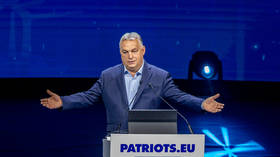UK supports new EU sanctions against Moscow that will ‘significantly punish’ Russian officials over alleged poisoning of Navalny
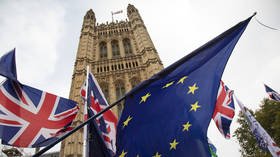
Britain will support a fresh round of EU sanctions against Russia. The targets are six high-level officials and a state research institute London believes is responsible for managing stocks of the nerve agent Novichok.
The UK Foreign Office declared on Thursday that the new sanctions, effective from October 15, will “send a strong message” and “significantly punish Russia’s reckless and malign behaviour”. The London government has announced that it will impose travel bans and asset freezes on the six individuals listed by the EU.
“The UK and its partners have agreed that there is no plausible explanation for Mr. Navalny’s poisoning, other than Russian [state] involvement and responsibility,” it said in a statement.
Also on rt.com An extra dose of Novichok? Russian activist Navalny could have been poisoned on two separate occasions in Tomsk, claims US mediaAmong those targeted are First Deputy Chief of Staff of the Russian President Sergey Kiriyenko; Director of the Federal Security Service Aleksandr Bortnikov; and two Deputy Ministers of Defense, Pavel Popov and Aleksey Krivoruchko. The State Scientific-Research Institute of Organic Chemistry and Technology, which the EU alleges is responsible for the Novichok nerve agent allegedly used against Navalny, is also listed as a target of the sanctions.
Russian Foreign Minister Sergey Lavrov had previously promised to mirror any sanctions imposed on Russia. “We will respond proportionately … The response will be diplomatic,” the TASS news agency quoted Lavrov as saying on Wednesday.
The EU-UK sanctions come despite a formerly stated willingness to cooperate with Russia. High Representative of the European Union Josep Borrell had acknowledged the importance of such cooperation. On Monday, he argued that the EU needed “to engage with Russia on foreign policy issues,” and drew particular attention to the Nagorno-Karabakh conflict and Moscow’s role in negotiating a peace deal.
On August 20, opposition figure Alexey Navalny was admitted to hospital in Omsk with a serious health condition. Local doctors found no signs of poisoning. He was subsequently transferred to Berlin, where the German government announced that its armed forces had allegedly found evidence of a Novichok nerve agent. Navalny has since been discharged from hospital.
Also on rt.com EU sanctions six senior Russian officials over Navalny 'poisoning,' claims they knew of alleged Novichok use on opposition figureLike this story? Share it with a friend!





